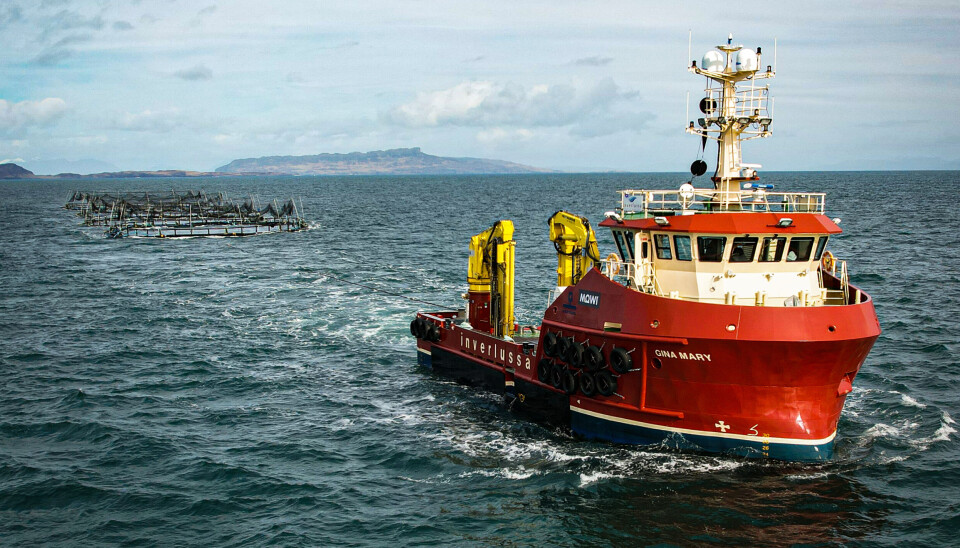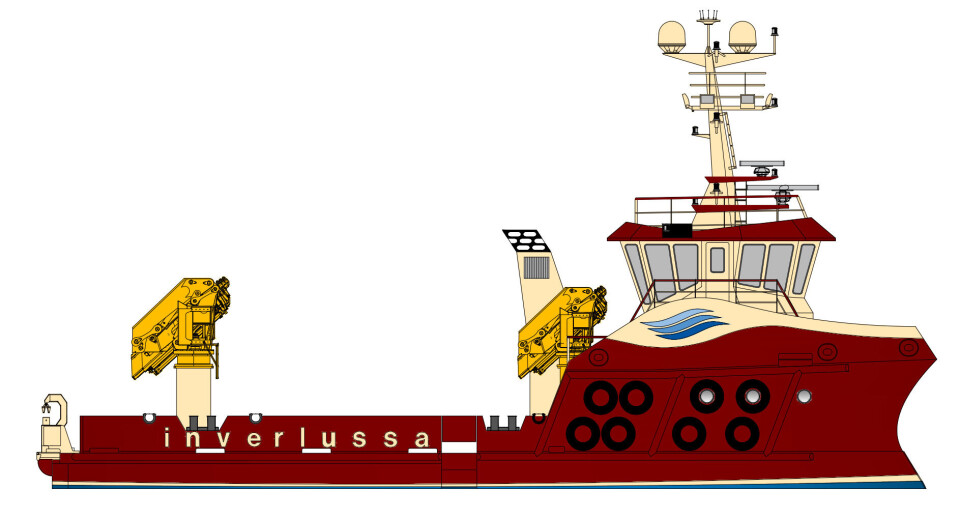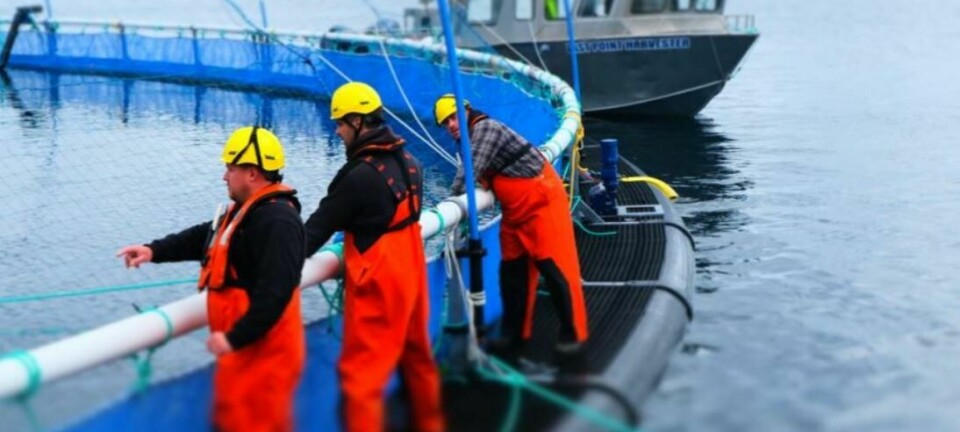
Scottish yard wins multi-million-pound order from Inverlussa
Marine services supplier chooses Macduff to build new boat designed for bigger salmon farms in more exposed sites
A leading Scottish aquaculture support company has awarded a multi-million-pound contract for a new hybrid workboat to support the Scottish salmon sector.
Mull-based Inverlussa Marine Services has appointed Macduff Shipyards to design and build the 25-metre vessel, which will be equipped with the latest technology.
Deputy First Minister Kate Forbes welcomed the announcement as she witnessed the contract signing at Macduff Harbour today.
The contract is expected to create an additional six jobs within Inverlussa, bringing the total number of employees to 140.
Proven shipbuilder
Macduff Shipyards has a track record of designing and fabricating vessels for aquaculture and fishing from its facilities in Macduff and Buckie, Moray.
The new vessel will expand Inverlussa’s fleet to 23 and will operate with a crew of six.
Work on the vessel is expected to commence shortly, with plans for it to be operational by the third quarter of 2025, supporting salmon farms off the west coast, as well as in Shetland and Orkney.
The vessel will be equipped with upgraded crane capacities and deck equipment, including larger towing and heavy-duty winches designed to lift and tow heavy objects such as feed barges.

This specialised equipment will enhance the firm’s salmon farm mooring grid handling capabilities and net lifting capacity, reflecting the increasing size of aquaculture equipment and maximising the safety and capability of its vessels and crew.
Intended to service larger sites operating in deeper, more exposed, and remote offshore locations, the vessel’s design emphasises advanced seakeeping capabilities to provide a stable platform in rough seas.
Ensuite cabins
It will also feature five ensuite cabins with a significant focus on noise reduction especially when conducting 24-hour operations to enhance crew comfort and living conditions aboard.
In additional to having a hybrid battery pack, the engines will meet the International Maritime Organisation’s strict Tier 3 emissions standards, achieving an 80% reduction in nitrogen oxide emissions compared to Tier 2, to significantly curb greenhouse gases.
Although not mandatory, the company has opted for Tier 3 compliance and hybrid to enhance the vessel’s eco-friendly credentials.

Kate Forbes, the Scottish Government’s Deputy First Minister and Cabinet Secretary for Economy and Gaelic, said: “It is crucial that we continue to embrace innovation in aquaculture practices so that the sector can become resilient to the pressing challenges posed by climate change.
“The Scottish Government’s Vision for Sustainable Aquaculture sets out our aspirations for a thriving and innovative sector. The deployment of new hybrid technologies is a great example of how innovation can contribute to the sustainable development of Scottish aquaculture.”
Greater capacity
Inverlussa managing director Ben Wilson said the new-build service boat was a state-of-the-art vessel from a Scottish shipyard with a first-class track record of building quality vessels for the aquaculture sector.
“As well as providing a much-needed boost to the Scottish shipbuilding industry, the addition of this vessel to our fleet will provide even greater capacity to our thriving Scottish salmon sector and provide increased capacity and capability in supporting salmon farming operations to operate as efficiently and sustainably as possible,” said Wilson.
“Inverlussa is proud to provide jobs for more than 130 people up and down the west coast of Scotland.
“The fact that this contract signing was attended by Scotland’s Deputy First Minister shows the importance our sector has to the Scottish economy, and to the many local communities that benefit from salmon farming.
“Inverlussa wants to provide added value to the Scottish aquaculture sector, and our continuing investment in our company, vessels, and people shows how we are committed to providing the best customer service.”
Invested heavily
John Watt, managing director at Macduff Shipyards, said the company was very grateful that Inverlussa Marine Services had once again placed its trust in Macduff.
“Inverlussa was one of the first companies in the aquaculture sector which the shipyard worked with and they have helped our business to expand and grow into this thriving industry.
“The new vessel is to be built at the shipyard’s Buckie facility which the company acquired in 2013. Since then, we have invested heavily in the site, renewing and upgrading the slipping facilities and sheds, as well as recruiting staff and training new apprentices.
“In recent years the company has been very busy, in both Macduff and Buckie, servicing and maintaining many of the Scottish aquaculture vessels and barges.
“The vessel design has been very carefully considered and we have redesigned the propulsion package to provide maximum efficiency, ensuring that the vessel is as energy efficient as possible.”
Grow salmon, grow the economy
Tavish Scott, chief executive of trade body Salmon Scotland, said Inverlussa and Macduff were shining examples of the more than 3,600 supply chain businesses that make an essential contribution to the Scottish salmon sector.
“The significant investment in new vessels with a greener footprint will enable our farmers to operate even more sustainably, regardless of the weather, and generate highly paid, highly skilled jobs, and prosperity in our rural and coastal communities,” said Scott.
“This is a real demonstration of the importance of salmon to Scotland’s economy – when we grow salmon, we grow our economy.”






















































